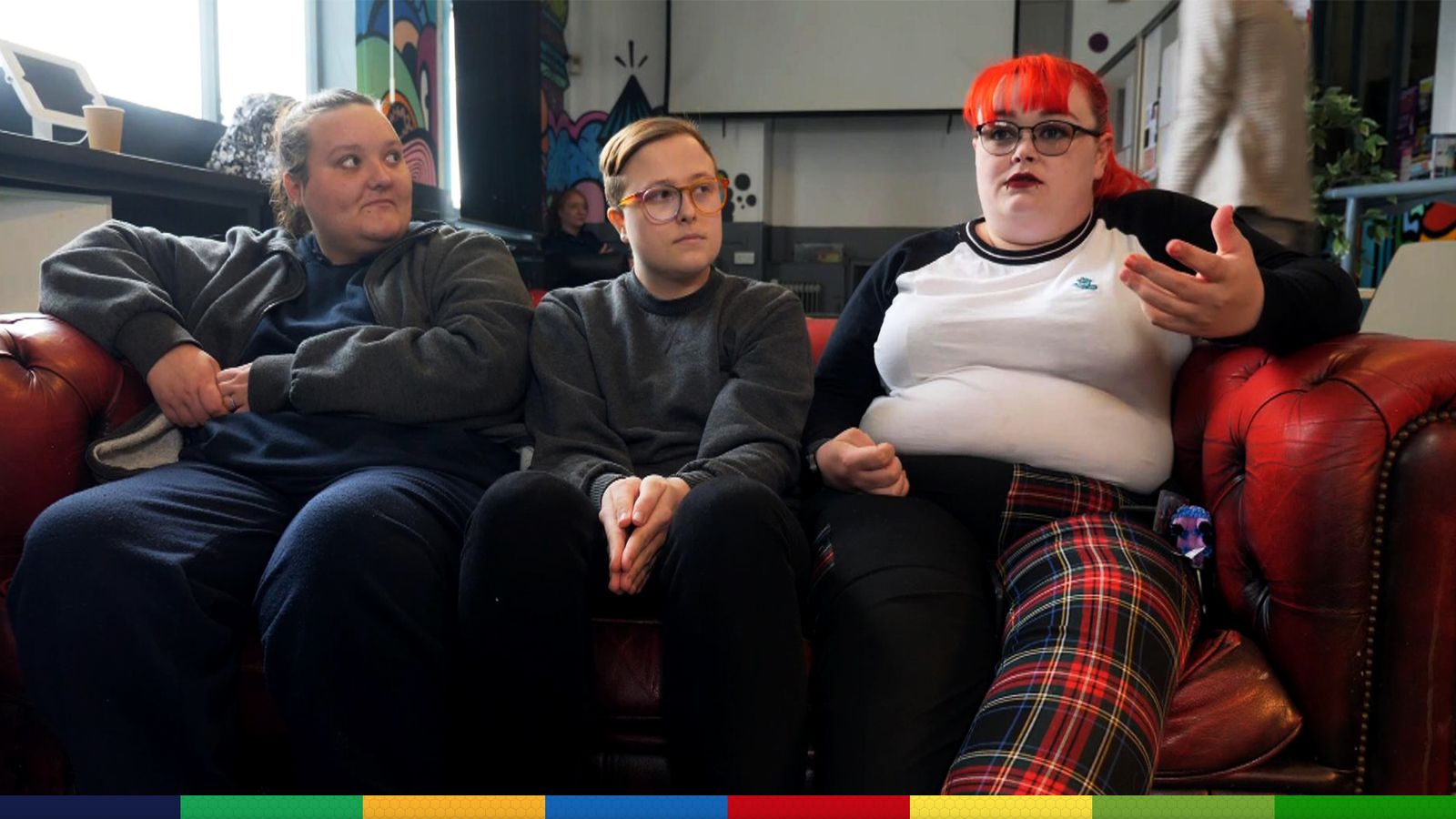Local elections 2023: ‘It’s just disenfranchisement on a grand scale’ – young people’s fears over new voter ID rules

A fundamental change to the voting system in England is coming.
Brought in with little fanfare but potentially huge consequences, a new requirement for voters to show photo ID for the first time could disenfranchise hundreds of thousands of people.
The rule change was a Conservative manifesto pledge, and parliament approved the change.
But as the first test of the new system approaches – May’s local elections – the dissenting voices are growing louder.
Across the country, up to 3.5 million eligible voters are without a valid ID. Although the government is offering free ID that can be accessed online, many are still unaware of the scheme.
At higher risk of being turned away at the ballot box are the elderly, those on low incomes, and people in rented accommodation and claiming unemployment or disability benefits.
And there are particular hotspots, like Hull in East Yorkshire.
At the Warren community centre, which provides a hub in the heart of the city for vulnerable young people, some of the regular attendees expressed their frustration and surprise at the policy.
Kytt, 25, described the new rules as “just another obstacle to people from underprivileged backgrounds or marginalised communities to vote”.
Advertisement
While Zalea, 22, said: “Young people themselves are struggling with job applications, so voting and getting a free ID is our last priority.
“I’ve never voted and trying to implement an ID process… it’s just making it a barrier, and we have enough barriers already.”
Others had never heard of the free ID scheme, and those who had thought it could be more difficult to use for some than the government was suggesting.
Laura, 25, said: “Some people might have disabilities, they might need help… like I did.”
Her grandmother, she explained, had to help her with voter registration: “I didn’t know big words or how to fill one in. Ever since that, I’ve not voted.”
Also raised was a general lack of access to the internet. “We know Hull is a massive area of data poverty. People don’t have internet or stable enough connection,” Kytt added.
The Warren’s CEO, JJ Tatten, had wider concerns about the long-term impact compulsory voter ID could have on vulnerable voters.
He said: “If they turn up at a polling station and they’re turned away because they don’t have the right ID… they will see it as a judgement on them – you don’t count and you are not eligible.
“All of those words are quite negative towards a cohort that already feels quite put upon and is already struggling with a whole host of issues.
“It’s just disenfranchisement on a grand scale.”
Please use Chrome browser for a more accessible video player
1:00
Why will voters need photo IDs to vote?
Ministers say it’s necessary to prevent in-person voter fraud despite the vanishingly low number of cases: there was just one incident which initiated court proceedings across all UK elections last year, according to the Electoral Commission.
That is one reason why Conservative former minister David Davis says there must be an urgent rethink. “It’s preventing something that doesn’t happen,” he said.
“This is an answer to a problem that’s not there… are we actually going to discriminate against the old and the poor in our election system?”
Given the low uptake of free IDs, the MP for Haltemprice and Howden in West Yorkshire is calling on the government to pause the policy.
He said: “I would like it scrapped, but they’ve spent a lot of political effort putting it through parliament, parliament’s approved it, but the system they put in place to deal with the problem of those with no ID has not worked.
“I would at the very least just delay it and say, ‘look we will do this in due course when we’ve got enough of the people in that vulnerable group covered’. If they do that, at least it avoids the worst outcome which is thousands, tens of thousands, even hundreds of thousands of people are prevented from voting and exercising their democratic right.”
Read more:
Local elections 2023 explained – everything you need to know about the vote
The political attack ads that have had an impact
Starmer prepared to be ‘ruthless’ in the local election campaign
Responding to suggestions by critics that the policy is being pushed because it will disproportionately disadvantage Labour voters, he said: “We see in other countries a lot of gerrymandering… I don’t think that’s the reason behind this, and I hope it’s not.
“But if it were, it could turn out to be a spectacular miscalculation. Elderly voters – I suspect three quarters of them vote Conservative – this could blow up in our face. It is wrong morally, wrong politically.”
Hitting back against the criticism, a government spokesperson said: “We cannot be complacent when it comes to ensuring our democracy remains secure. Photo identification has been used in Northern Ireland elections since 2003.
“The vast majority of people already have a form of acceptable identification. We’re urging anyone who doesn’t to apply for a free Voter Authority Certificate as soon as possible and we expect more people to apply over the next few weeks.
“We’re working closely with the sector to support the rollout and are funding the necessary equipment and staffing for the change in requirements.”
The deadline for applying for free voter ID in time to vote in May’s local elections is 5pm on 25 April.